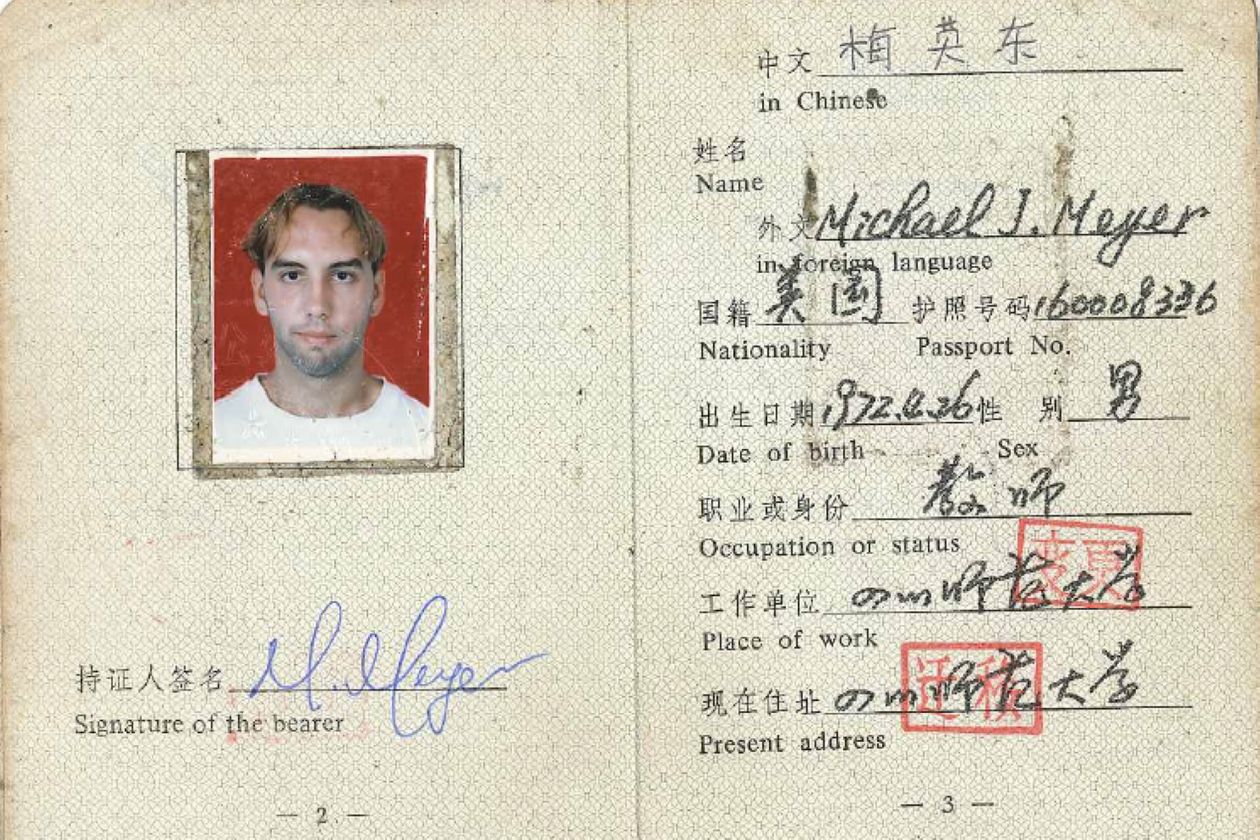Michael Meyer (China) — “The Peace Corps Cuts and Runs” (WSJ)
Thanks for the ‘heads up’ from Marnie Mueller (Ecuador 1963-65)
•
The Peace Corps Cuts and Runs
I taught teenagers in southwest China about the Bible and the stock market.
by Michael Meyer (China 1995-97)
Wall Street Journal, Jan. 24, 2020
Amid fanfare at the White House, the U.S. and China signed an agreement pausing the trade war. The next day, the U.S. quietly terminated its Peace Corps program in China. The news didn’t merit a presidential tweet, or even a Peace Corps press release. An explanation is in order, because the program is one of the greatest diplomatic success stories in the history of both the Peace Corps and U.S.-China relations.
The program began in 1993, delayed a few years because of the 1989 Tiananmen Square massacre. Mao Zedong had slandered the Peace Corps as a tool of American imperialism, so his more pragmatic successors changed its name. I arrived as a U.S.-China Friendship Volunteer in 1995, part of the second group of American volunteers, assigned to teach English to undergraduate teacher-trainees in southwest China. I was the first foreigner these teenagers had ever seen, and my Chinese handler sternly commanded me to teach them about the Bible, the stock market, the Beatles and American literature. I became fluent in Chinese, remained in China for more than a decade as a writer, and now teach Chinese nonfiction to American undergraduates.
Most of my Peace Corps college students returned to their villages to teach English to elementary students. I cannot swear that none of the kids I taught grew up to be Huawei executives, soybean traders or Xinjiang concentration-camp guards, but if they have, they hide it well, under the cover of WeChat threads about their children, their students and the soaring price of pork.
But maybe Florida Sens. Marco Rubio and Rick Scott know better. It was Mr. Rubio who broke the news of the program’s termination on his website. “For too long,” he wrote, “Beijing has fooled organizations such as the World Bank and the World Trade Organization into believing otherwise so it could exploit our global institutions.”
Mr. Scott put the China program in his crosshairs last July, when he introduced the Peace Corps Mission Accountability Act, which would terminate operations in China and other “hostile” countries. His reaction to the withdrawal: “I’m glad the Peace Corps has finally come to its senses and sees Communist China for what it is: the second largest economy in the world and an adversary of the United States.”
When the program pulled out of Russia after 11 years in 2003, it issued a statement praising the 700 volunteers who had served there over those years. So far the Peace Corps has said nothing about the more than 1,300 volunteers who have served in China since 1993.
They represent America and its values in a country that controls the information its citizens receive. They maintain the steady daily habits of being engaged, learning the language and helping out in communities whose own national government falters. Is there a better or more cost-effective form of public diplomacy?
The Peace Corps isn’t a perfect agency, and it shouldn’t be shielded from criticism or change. But neither should the Peace Corps turn tail from China because two senators don’t understand its mission there. Instead, its director, Jody Olsen, should explain why she’s informed Congress of the China program’s termination, and how this serves the agency’s objectives.
Who knows, maybe Ms. Olsen has a card up her sleeve. A Peace Corps program in Vietnam has long been planned, but why stop there? Cuba is much closer.
•
Mr. Meyer (China 1995-97) is author of The Road to Sleeping Dragon: Learning China from the Ground Up.

It’s a sad and consternating day when the Peace Corps pulls out of any country. And, often the closing of a Peace Corps country program is a prelude to greater tension with a country and/or an increase in instability in a country. If there is not peace and stability in a country, how can it progress?
That is a beautiful piece that Michael Meyer wrote–it should be widely distributed, but I like that it starts in the Wall Street Journal. Some of the people who should might read it there!
An interesting and informative as well as saddening article: I hope many read it. As for Mr. Scott and Mr. Rubio, certainly no surprise there–this coming from a Florida resident…
As an older Returned Peace Corps Volunterr (Niger 2010-2011 and Armenia 2011-2013) I was surprised to accidentally read about the eventual closure of PC China. Apparently current volunteers will finish their times there with no new volunteers being sent. Niger was closed in 2011 due to terrorist activity while my husband and I were serving there. It was a correct and necessary but sad decision. I agree that more transparency regarding such decisions should be made, but sometimes other factors come into play. I strongly support opening a Peace Corps program in Vietnam to follow the successful one in Cambodia. These countries are populated by resilient, determined people who with support can better the world for themselves and others.